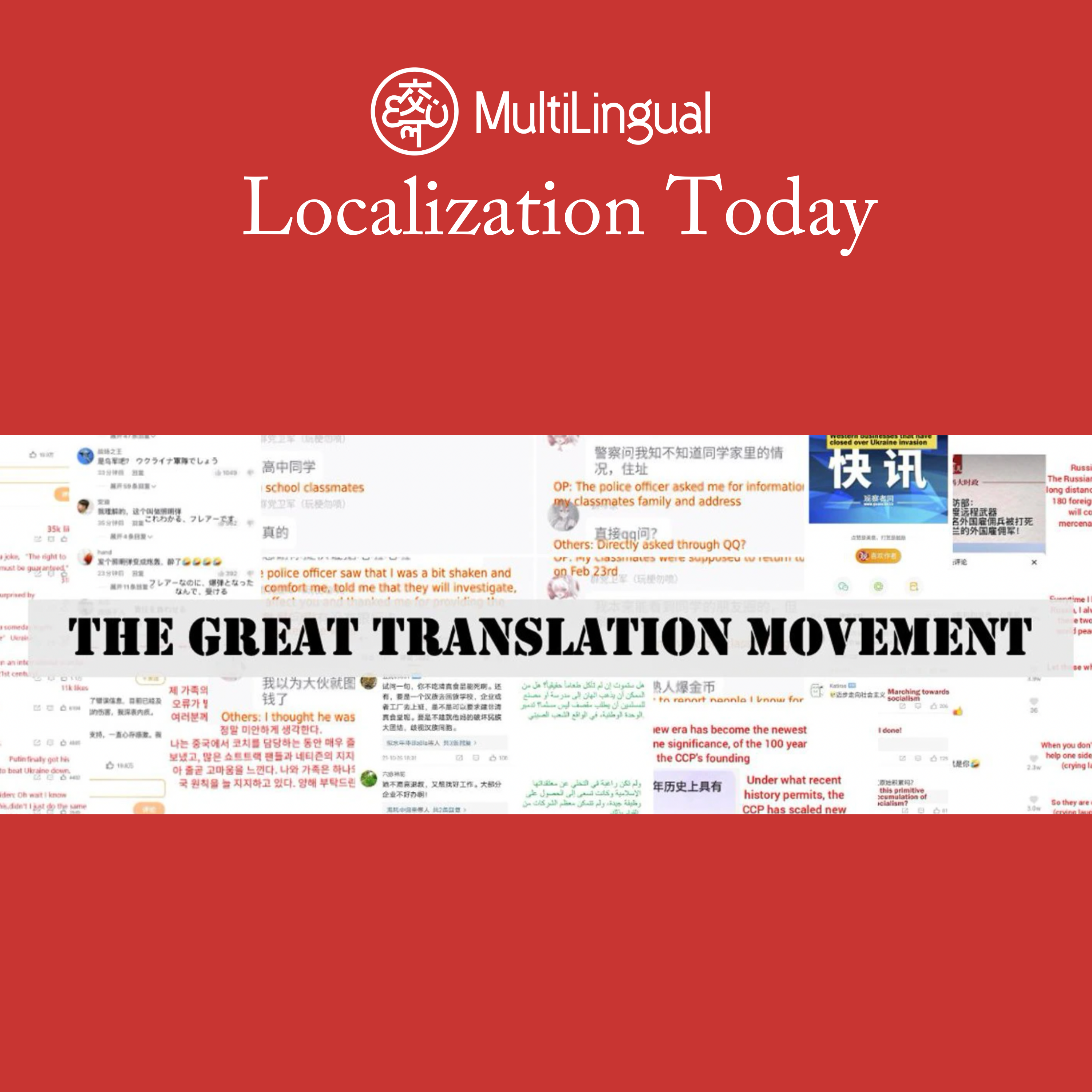Episode Transcript
[00:00:00] Faster higher, stronger together language services at the Olympics by Natalie Gref Santamaria the idea that practicing sports can help us transcend differences and reach higher human values dates back to ancient times in Olympia, Greece, when the first Olympiad took place in 776 bc. Over the centuries, there were many attempts at reviving this ideal. In 1896, efforts led by french educator and historian Pierre de Coubertin finally crystallized into the modern Olympic and, some years later, Paralympic Games. De Coubertin imagined an event in which language, race, and religion raise no barriers.
[00:00:41] Translation and interpreting, therefore, are key facilitators of Olympic values. De Coubertins original motto for the modern Olympics, Sidious Altius Fortius faster higher stronger, was modified in 2021 with the addition of the word communiter together to recognize the unifying power of sport and the importance of solidarity, further emphasizing the role of communication and multilingualism. Today, language services play an essential role at each edition of the Olympic and Paralympic Games.
[00:01:14] At the summer 2024 Olympic Games, taking place this month in Paris, the language services team will offer professional, remote, simultaneous interpreting. At most of the metal round press conferences, there will be 66 professional interpreters, along with hundreds of trained volunteers working at venues across the city to ensure that athletes and spectators can fully participate and that events run smoothly. A brief history multilingualism has always been at the core of the modern Olympics.
[00:01:44] In fact, the International Olympic Committee's Olympic Charter reads, the IOC official languages are French and English.
[00:01:54] At all sessions, simultaneous interpretation must be provided into French and English.
[00:01:59] Other languages may be provided at the session. In the case of divergence between the french and english texts of the Olympic Charter and any other IOC document, the french text shall prevail unless expressly provided otherwise. In writing. Over time, this text evolved from simply a paragraph inside the meeting's article to becoming its own. Article 23 showing how the importance of language grew from one edition of the games to the next as more countries participated. The 1896 Olympics in Athens hosted 241 participants representing 14 delegations, whereas the Paris 2024 Olympics will host around 10,500 competitors representing 206 delegations.
[00:02:42] It was only at the Munich Summer Games in 1972, however, that an organizing committee for the Olympic Games, the host city organization charged with putting on an edition of the games, wished to improve on previous games where it was felt that the athletes competed but did not communicate adequately. From then on, language services constituted an independent functional area in the IOC and all ocogs. In a journal article titled Language Services at the Olympic Games, author Gunther Bayer noted that the 1970s were a time when more and more national and supranational organizations and private companies were acquiring language services of their own in sports, it was the case not only for the Olympics but also for international organizations like the International Federation of Football Association, FIFA, and continental events like the Pan American Games. Our responsibilities besides French and English, the host city's local language is included in every edition of the games. In a high stakes and complex environment like the Olympics, in house language services are essential for properly managing various needs, terminologies and timings.
[00:03:54] Sound decisions must be made quickly and with full knowledge of the facts. The scope of the services provided varies by OCOG and can include anything from interpretation, translation, correction and editing to training stakeholders in other departments. In the case of Paris 2024, the scope is extremely focused on providing interpretation services during games in a mostly remote setup, as well as managing sports glossaries and training certain volunteers from other departments such as press volunteers. In the mixed zones areas where journalists conduct flash interviews right after athletes compete, translation and correction services are the publishing departments responsibilities.
[00:04:36] The planning phase is just as important as the operational phase.
[00:04:40] The language services department for Paris 2024 was set up about two and a half years in advance. The most vital part of the planning phase is building a team of professional interpreters with a specific knowledge set combining specialized language skills and experiences being themselves conference interpreters, translators and linguists, and technical skills for on site and remote interpretation when the main language spoken in the city hosting the games is one of the two official languages, as is the case for Paris 2024, Los Angeles 2028 and Brisbane 2032, the need to provide immediate, extensive language services proves to be less pressing, but part of the language services mission is to identify and offer additional spoken languages during press conferences and other events. Paris 2024 feels lucky to offer nine additional Arabic, Chinese, Mandarin, German, Italian, Japanese, Korean, Portuguese, Russian and Spanish.
[00:05:42] Lets not forget that edition after edition. The IOC welcomes new sports. The need for interpretation services after every medal competition has increased from ten in Athens 1896, around 43 conferences to 48 in Paris 2024. Around 350 conferences.
[00:06:02] Technology and operational changes a significant aspect of the language services department is, of course technology when it comes to interpreting provided at the Olympic and paralympic village, we used to rely solely on language assistance, also called language specialists or language services volunteers, depending on the OCOG who were on site days and nights ready to assist.
[00:06:26] Over time, more phone interpretation was offered and nowadays we use more and more cloud based tools for supporting informal and non professional communication.
[00:06:35] Professional remote simultaneous interpreting services will be provided from a dedicated hub built by the language services and technology teams representing a significant operational advancement compared to past Olympics. Before the pandemic, most of the professional interpretation was done on site with traditional hardware equipment. It was extremely challenging to get the right interpreters to the right venue at the right time due to the fact that venues are numerous and scattered and no one knows very far in advance who will be competing or even when an event will start. The Olympics are one of the few multilingual events where the language services team is made aware of the relevant languages only 45 minutes before the event. When an athlete or a team wins on top of that event, start times often depend on the length of the previous competition. For example, tennis matches can last anywhere from 50 minutes to 11 hours before remote simultaneous interpretation settings. The language services team had to rely a lot on predictions and projections when sending interpreters to a venue. Nowadays, technology makes it possible to have all the interpreters in a hub with more time to focus on what they do the best and less time wasted commuting between venues.
[00:07:51] Interpreters remain on standby during their shift and in the case of Paris 2024, are ready to jump from the preparation room to the remote interpretation center next door, literally to serve athletes and journalists wherever they are. Compared to previous games, where not all the rooms were always equipped with booths and staffed with technicians, it means that the vast majority of the press conferences will be interpreted simultaneously, with very few consecutive moments reflecting olympic values. In many ways, linguists are not unlike athletes. Interpreting, for instance, is really like training a muscle, practicing time and time again, keeping a healthy lifestyle, especially in terms of food and sleep, and learning how teamwork in the booth improves the rendition. To extend the metaphor, the language services staff members are like coaches. They incentivize their players, create high quality working conditions, and make sure the rules of the game are followed by the letter faster, higher, stronger together is not only the Olympic motto, but also reflects the work we do in language services.
[00:08:57] From learning terminology for newly added sports to offering languages beyond those required, we are always striving to improve communication in any way we can. In the end, the goal of language services at the Olympics is to play a perfect symphony with our interpreter musicians for a very diverse audience of accredited media, athletes, coaches, spectators, the OCOG and the host countrys. Government language services exist to make sure that the needs of the musicians and their instruments, the audience and the room itself are taken care of so that everyone can focus together on the task at hand and forget that they dont understand a word of the original ill close with the words of Craig Spence, chief communications officer of the International Paralympic Committee. IPC interpretation is fundamental to everything that we do.
[00:09:46] This article was written by Natalie Gref Santa Maria, a conference interpreter and the head of Paris. 2024 Olympics and Paralympics language services originally published in multilingual magazine, issue 230, July 2024.


